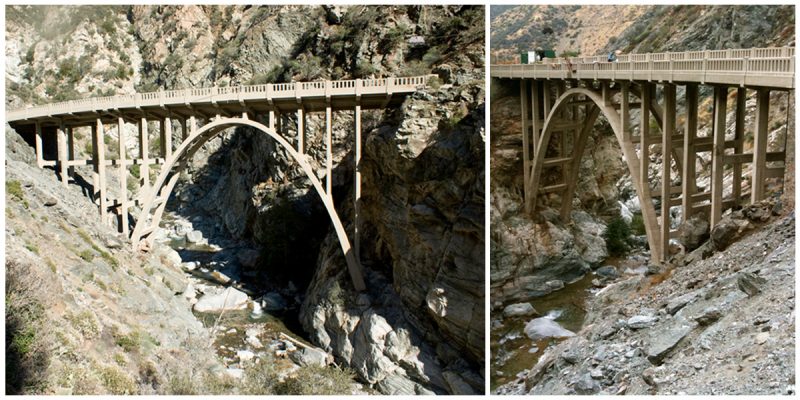The Bridge to Nowhere is an arch bridge that was built in 1936 north of Azusa, California in the San Gabriel Mountains, to be part of a road connecting the San Gabriel Valley with Wrightwood.
Construction began in 1929 and by the mid-1930s the highway had reached The Narrows (2800ft) where the East Fork flows through a very deep gorge, the deepest in Southern California.
A tunnel was also chiseled out of sheer rock.
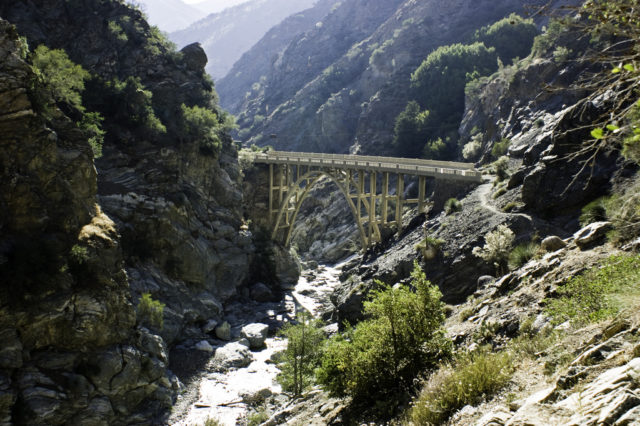
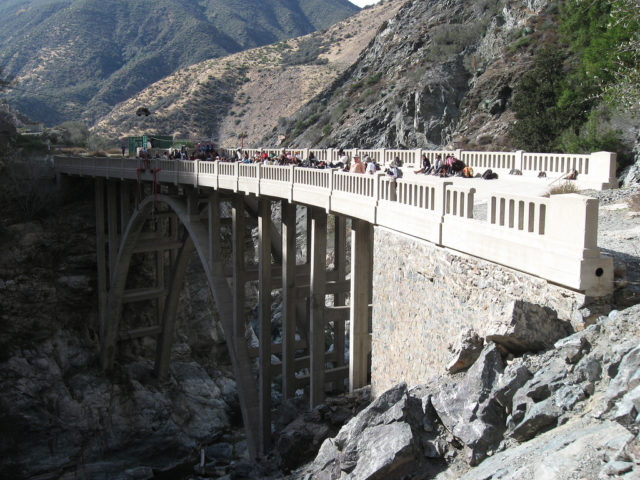
A number of bridges were built as the road snaked its way into the canyon. However, the winter after this difficult construction task had been completed, an unprecedented rainstorm arrived on March 1-2, 1938. The result was a tremendous flood that roared down the East Fork.
The flood washed out the road and damaged some of the bridges. This same rainstorm wreaked havoc in Los Angeles as well and precipitated the cement lining of the LA River as we see it today.
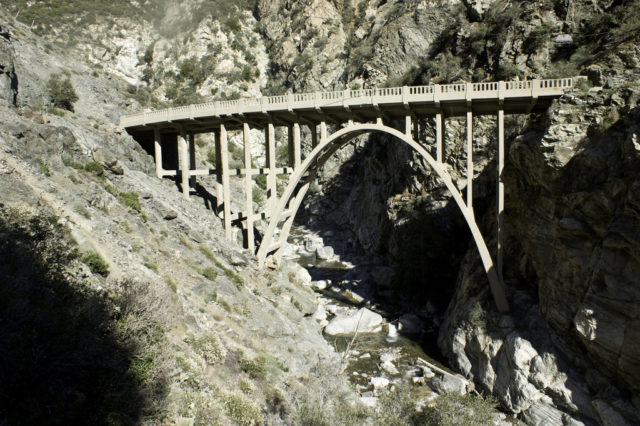
After the flood, no one tried to rebuild the road and The East Fork Road project was abandoned, leaving the bridge forever stranded in the middle of what is now the Sheep Mountain Wilderness.
Parts of the old asphalt roadway can still be found along the East Fork Trail which leads to the bridge, and there are still a number of concrete slabs which formed the foundations of destroyed bridges to the west of the Bridge to Nowhere.
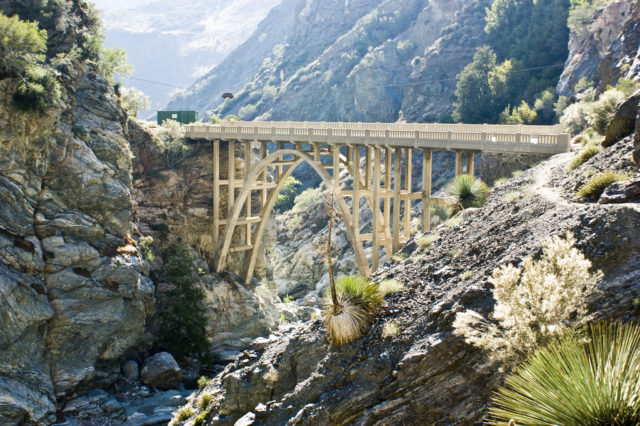
The bridge alone remains, an eerie yet historic insight into the past, and it is only accessible through a 10-mile roundtrip hike.
The maintenance of the East Fork Trail which leads to the Bridge To Nowhere is the responsibility of the San Gabriel Mountains Trailbuilders volunteer organization which works under the supervision of the United States Forest Service.
Typically trail repairs and maintenance are performed by the Trailbuilders during the Winter months when snow within the Crystal Lake Recreation Area makes trail working at higher elevations in the San Gabriel Mountains difficult and at times hazardous.
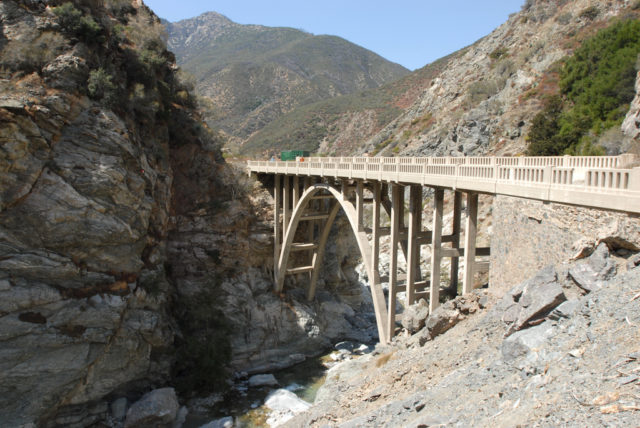
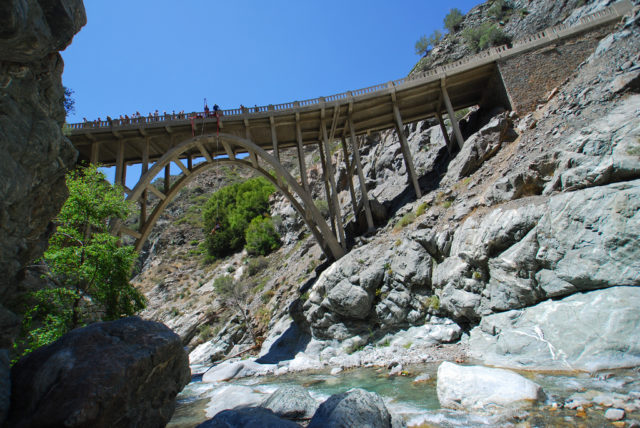
It became a popular destination for hikers and bungee jumping is provided by a private company.
